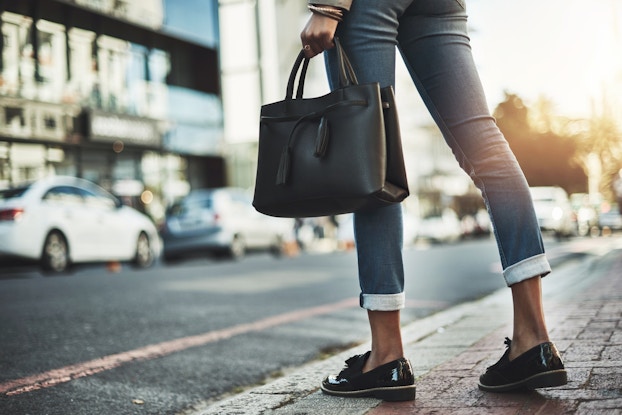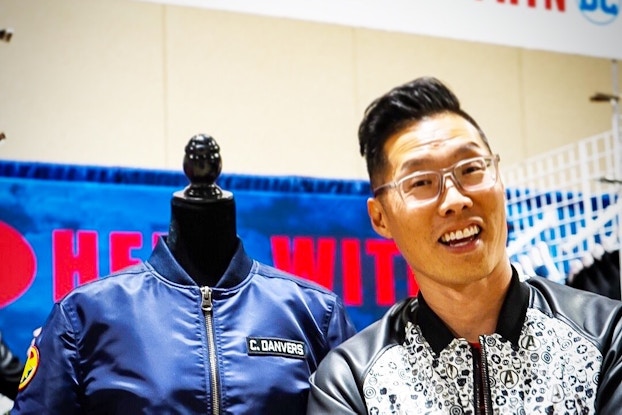
For the fashion industry, the COVID-19 pandemic set off a disastrous chain of events.
First, the Chinese apparel factories closed due to the outbreak in that country.
Then, as the pandemic spread around the world, department stores and malls shut their doors, and retailers canceled orders.
Those cancellations now threaten the factories that make the clothes, the vendors that supply the raw materials and a host of related industries.
The crisis vividly illustrates how dependent this sourcing supply chain is on each link in it, said Gary Wassner, CEO of Hilldun, a leading finance and factoring company that serves over 450 fashion brands.
The industry is now scrambling to figure out how to keep all of those links intact so there’s still a working chain, and a healthy fashion industry, when this is over.
Wassner and other fashion industry experts addressed that concern in an online conference hosted by the Fashion Law Institute at Fordham University. Conference participants said retailers and suppliers need to take dramatic measures to prevent the U.S. fashion industry from suffering permanent damage. Fashion brands right now need to be able to pivot, negotiate and cooperate, speakers at the virtual conference said.
Pivot
“We’re pivoting so much we’re doing 360s right now,” said Tony Kim, CEO of superhero-inspired fashion brand Hero Within. “When 2020 opened, we expected this to be our biggest and brightest year in the fashion industry, and now we’re making face masks. Talk about a plot twist,” Kim said.
About 60% of Kim’s business comes from trade shows and appearances at comic conventions and fan events. In March, usually his second busiest month of the year, four major shows were canceled.
Kim asked his factories to shift production to face masks, and began selling a pandemic-inspired t-shirt to raise money to purchase and donate masks.
Wassner believes the entire industry needs to make a combined pivot to prepare for business after the pandemic. Retailers need to cooperatively agree to shift the timing of apparel merchandising, he said. Instead of marking down spring and summer merchandise while it is still warm out, keep it at full price through the season, and only mark it down when the next season starts.
Retailers, Wassner said, “have been stuck in this promotional cycle where they get the merchandise in way too early and then it’s on sale by the time you actually need to wear it.” If they do that when stores reopen in June or July, it will be disastrous, he said. Wassner has been talking to all of the major retailers and many of them are rethinking the cycle of early markdowns.
Clothing brands that have e-commerce sites should immediately curate a selection of comfy, feel-good items for customers and market them, he said. “It’s a time for comfort clothing.”
When 2020 opened, we expected this to be our biggest and brightest year in the fashion industry, and now we’re making face masks. Talk about a plot twist.Tony Kim, CEO, Hero Within
Coronavirus Guide for Small Businesses
CO— is working to bring you the best resources and information to help you navigate this challenging time. Read on for our complete coronavirus coverage.
Negotiate
Fashion brands are discovering that many of their contracts have force majeure (act of God)clauses that list disease as an allowable reason to cancel a purchase order or contract.
Panelists said brands should contact retailers who cancel orders and offer alternatives, such as delayed merchandise deliveries, or product substitutions, or discounts.
It is in the best interest of the major retailers to be flexible in terms of enforcing those contracts, said Jeff Trexler, attorney and co-founder of Moda Legal and associate director of the Fashion Law Institute. “Adhering to the strict language of each contract could be fatal to the industry because there is an infrastructure we’re in danger of losing,” he said. If retailers don’t continue to pay brands and designers and factories, they won’t be available to ramp up production when needed, Trexler said.
In negotiations, it helps to understand what the other party’s thinking and what their interests are, said Christina Del Valle, senior associate general counsel for the Metropolitan Museum of Art.
In her role at the museum, Del Valle is responding to vendor contracts affected by the cancellation of premier fashion industry event the Met Gala, and by the decision to close the museum. “Sometimes we can come up with a solution just by understanding what their actual concern is, other than just the cash,” Del Valle said.

Cooperate
When the crisis ends, and it will end, the panelists said, the industry will remember how you behaved when things looked the worst.
“They will remember that you let things slide a little or you helped them get through the problem and they will give that back to you,” said attorney Don Obert, managing member of The Obert Law Firm P.L.L.C., who specializes in international trade, export and customs law.
“Reputation is something that you cannot get back easily,” he said. “And if you’re going to renege on agreements and completely throw things down the tube, that is going to be an issue going forward,” he said. “Even though fashion is global, it’s a small industry in the sense that everybody sort of knows everybody.”
CO—is committed to helping you start, run and grow your small business. Learn more about the benefits of small business membership in the U.S. Chamber of Commerce, here.

What can membership do for your business?
Gain tools to stay informed, competitive, and connected by becoming a U.S. Chamber of Commerce member. Membership gives you direct access to expert policy insights, economic updates, and exclusive resources designed to help your business thrive. From behind-the-scenes analysis from D.C. to exclusive discounts and expert support, U.S. Chamber membership helps you navigate change and seize new opportunities.







